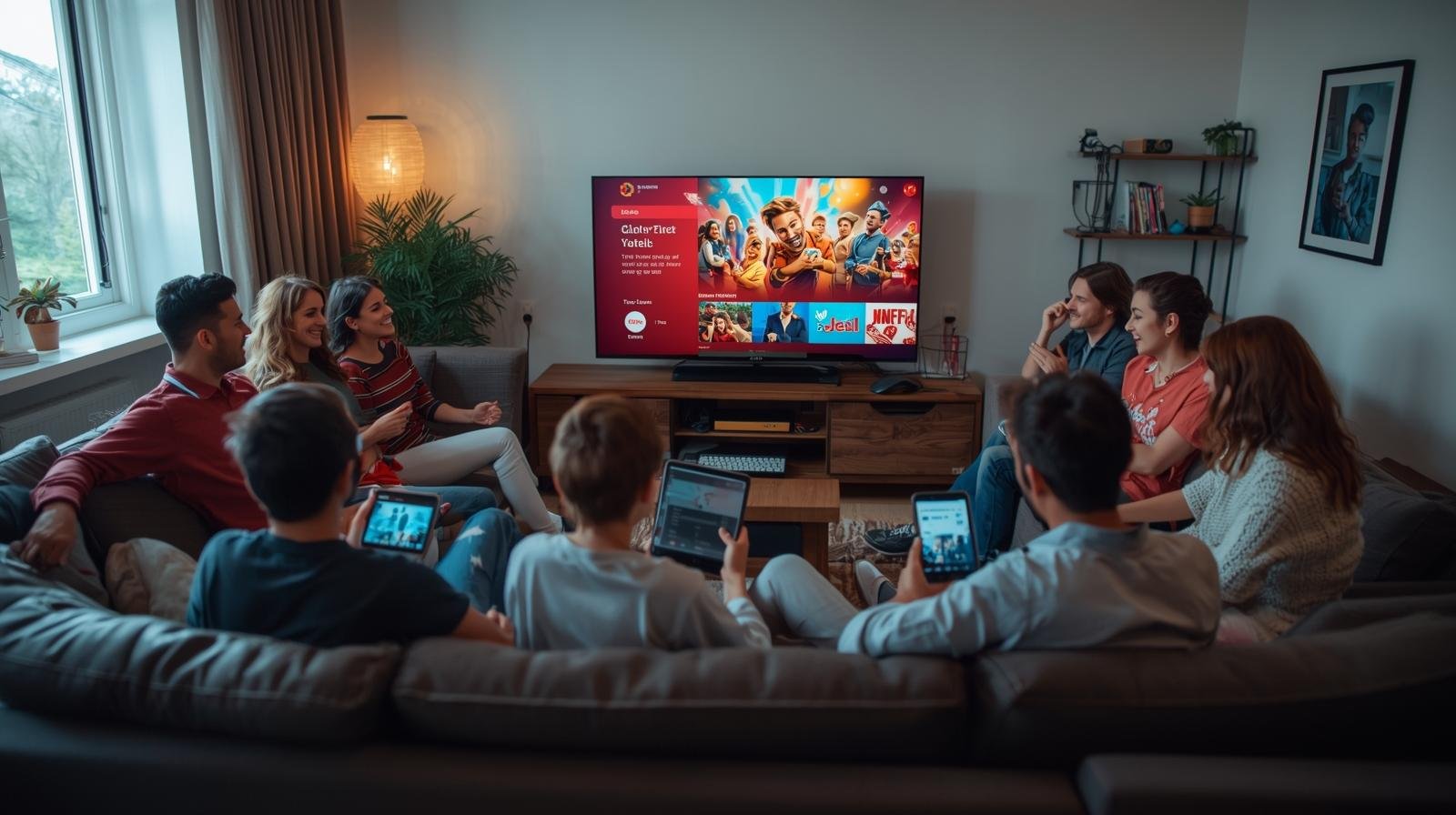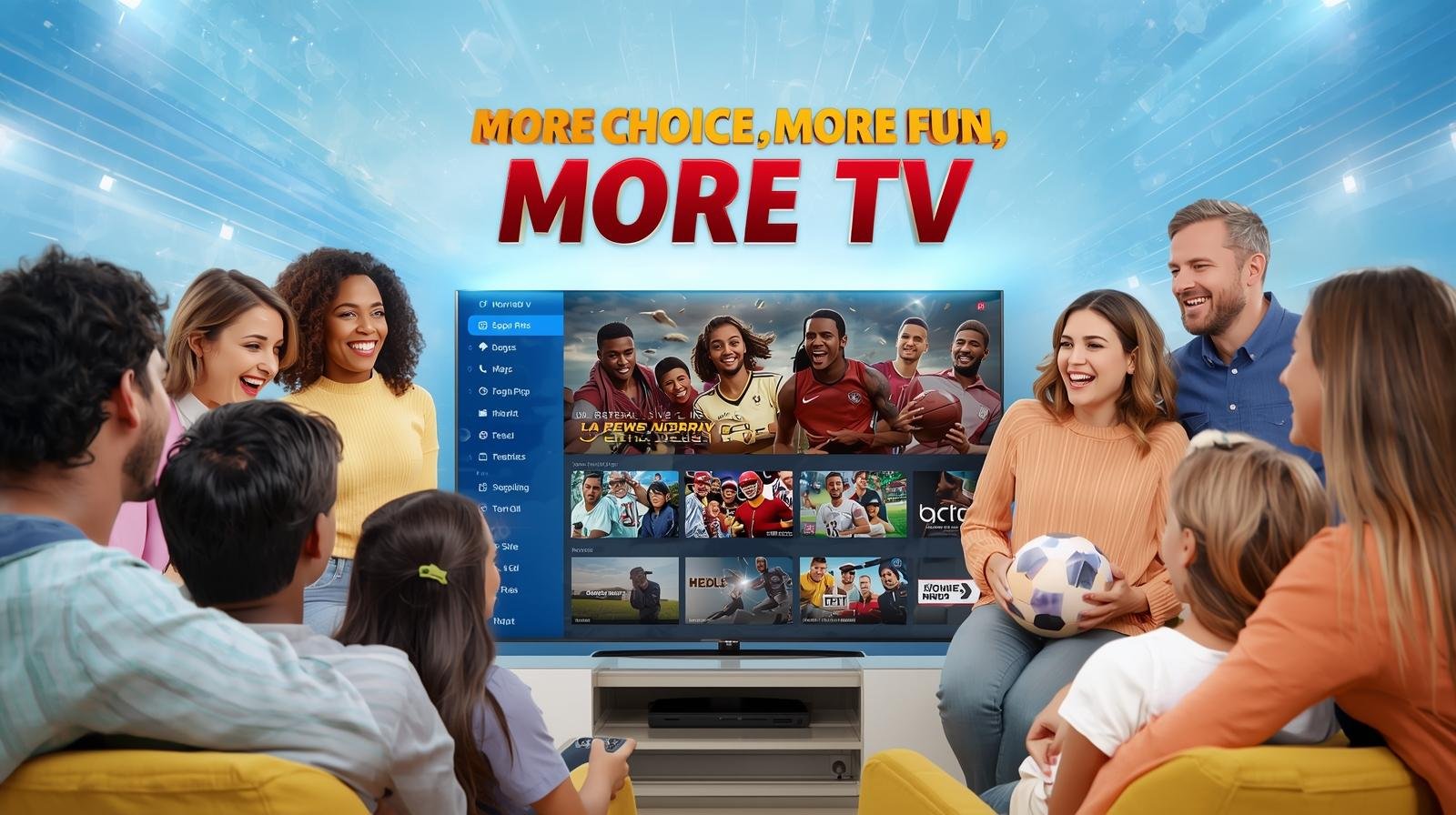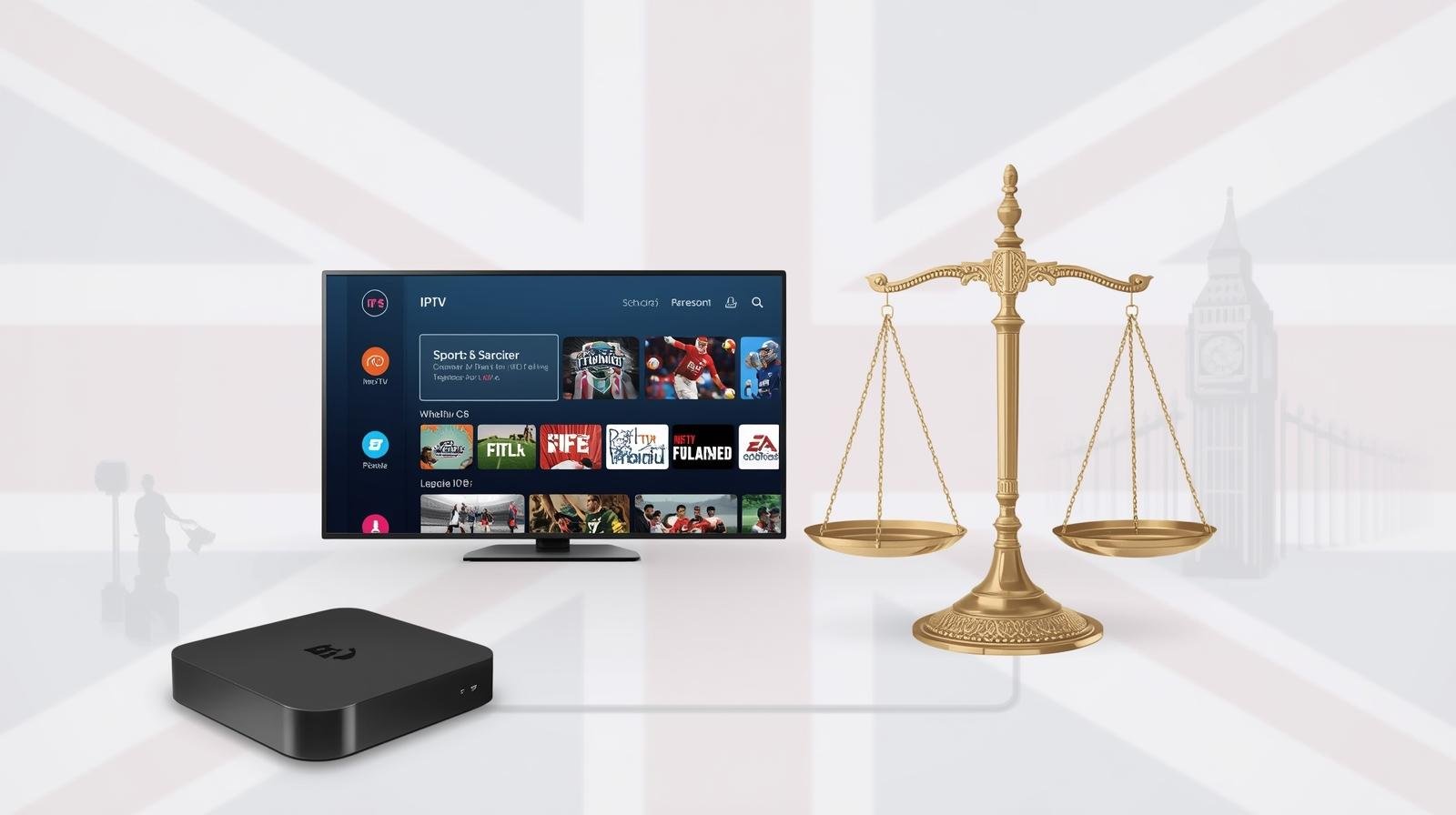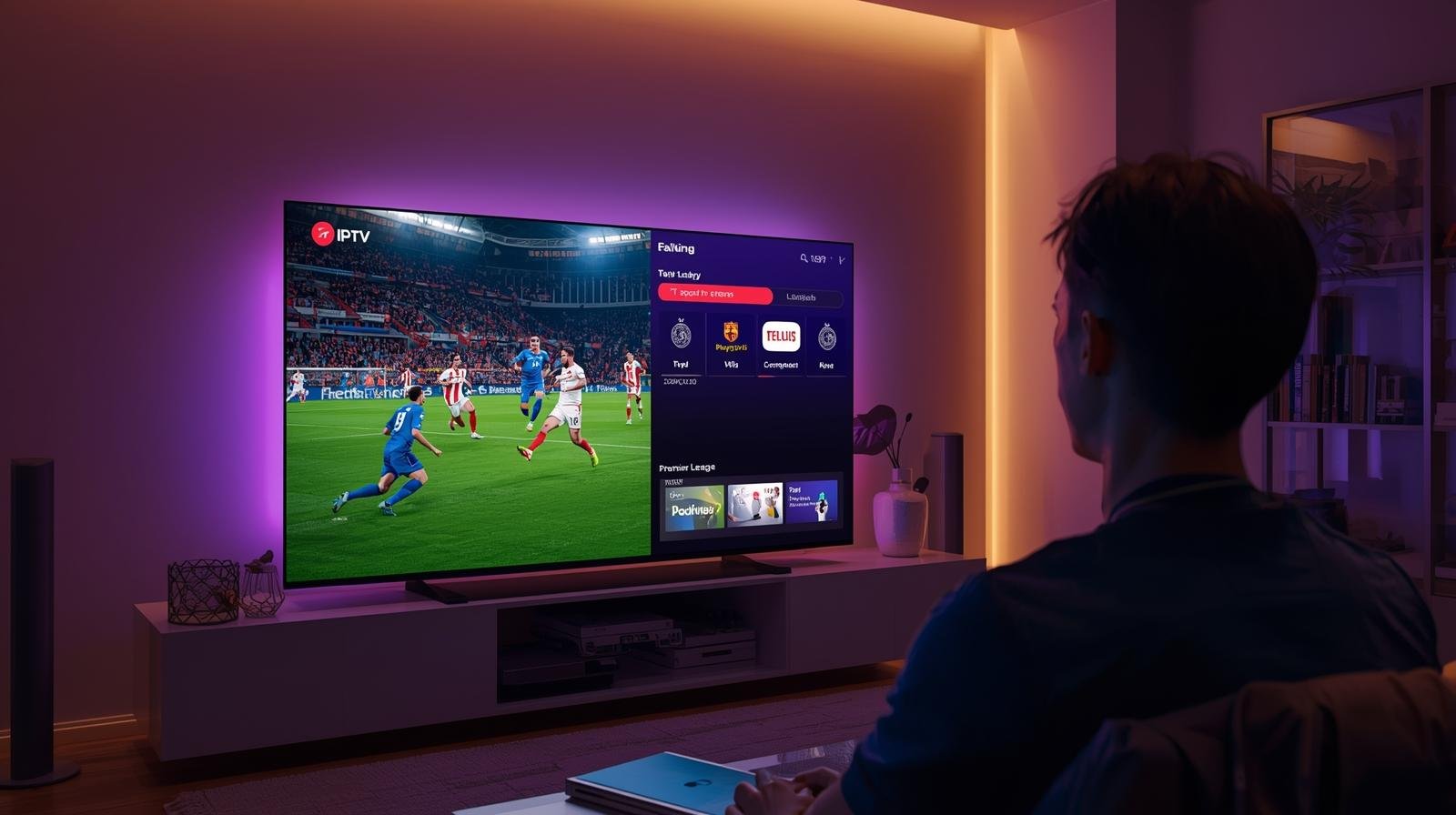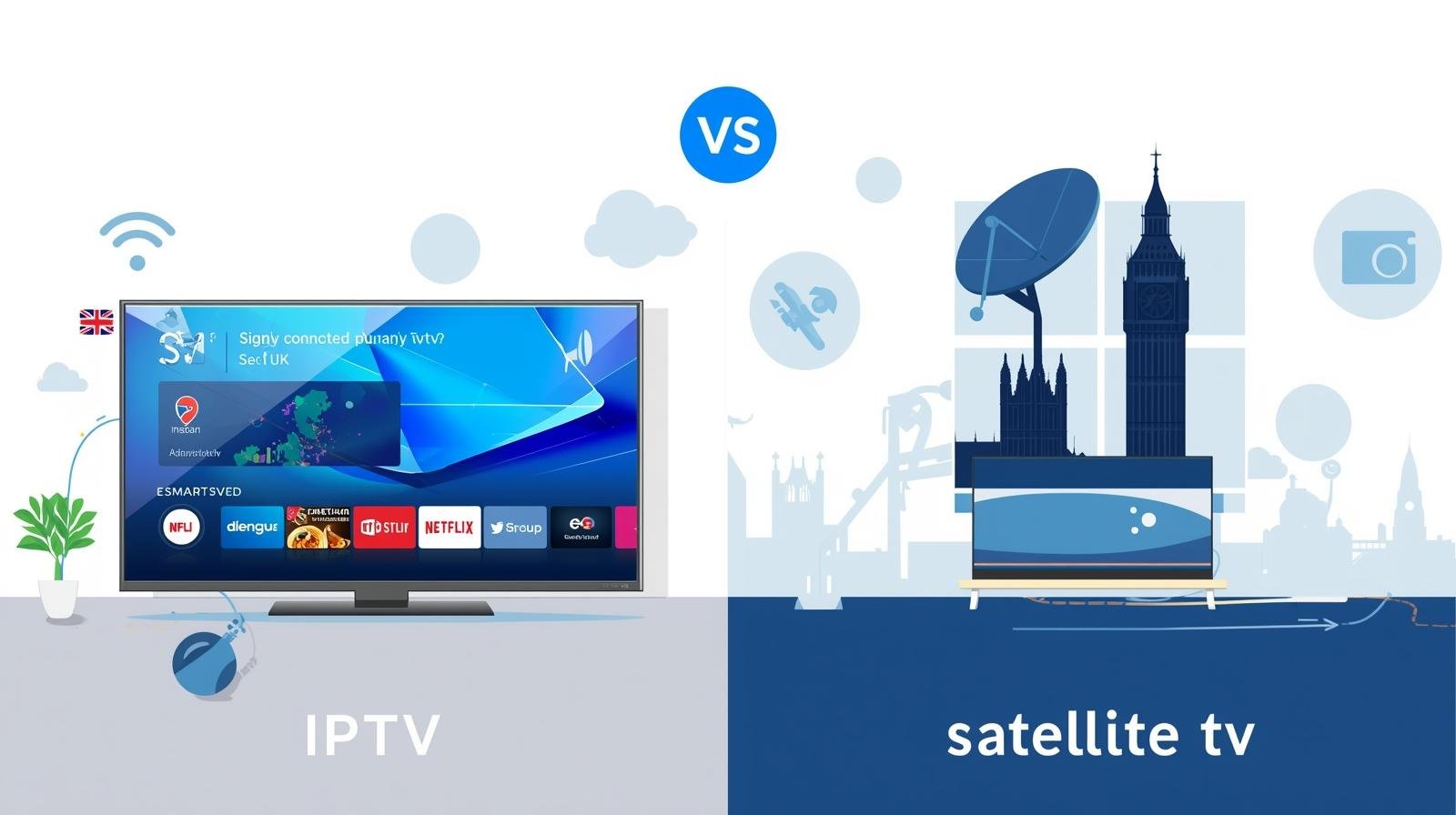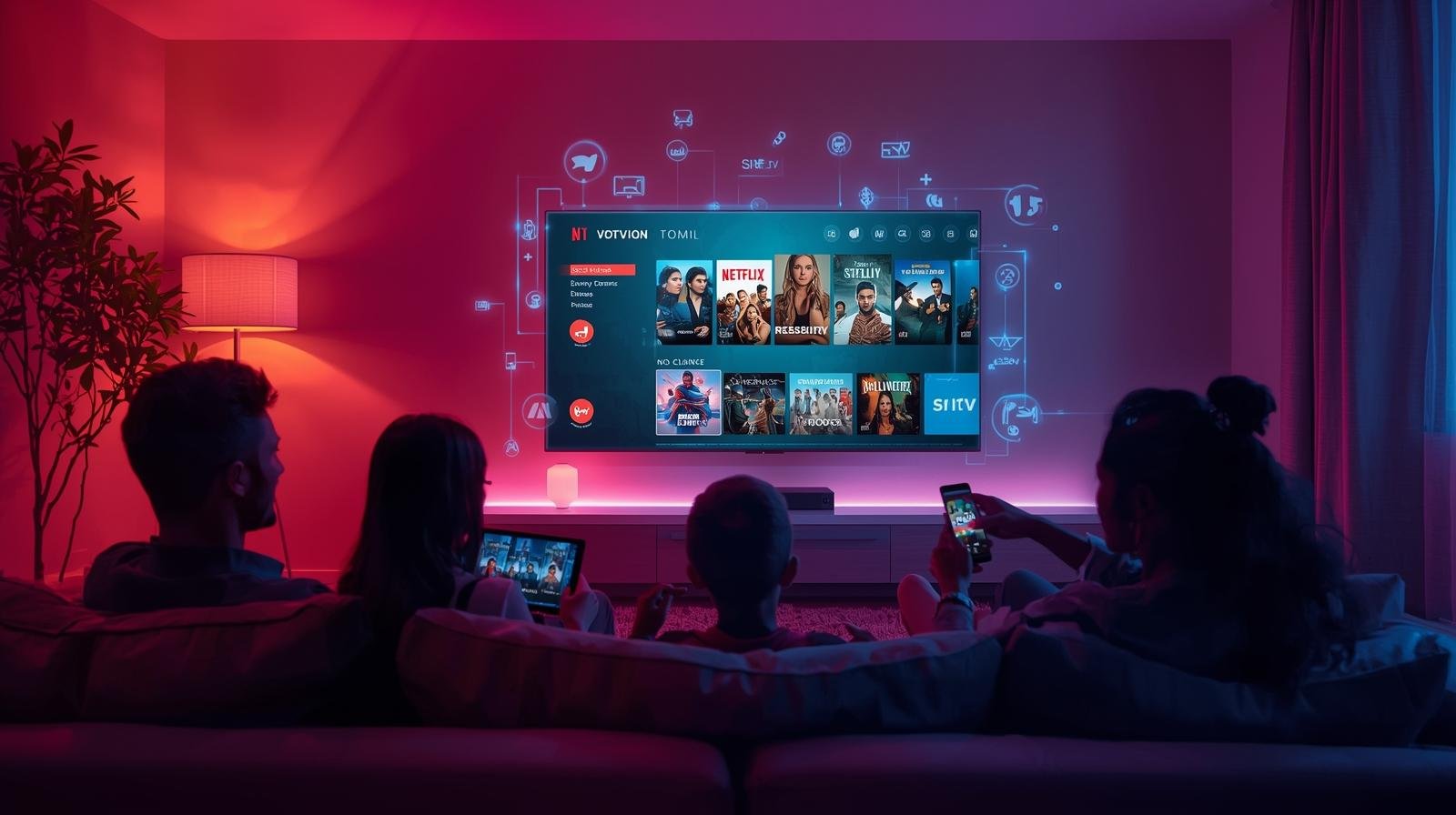Television is no longer what it used to be. In the UK, the days of relying solely on rooftop aerials, bulky satellite dishes, or expensive cable packages are fading. Instead, a new standard is shaping the future of entertainment: IPTV (Internet Protocol Television). Best IPTV services UK .
If you’ve heard the term but aren’t sure what it means, how it works, or whether it’s right for your home, you’re not alone. IPTV has quickly become one of the most talked-about topics in the UK TV landscape, yet for many, it’s still surrounded by confusion.
- IPTV Defined: What It Really Means
IPTV stands for Internet Protocol Television. Put simply, it’s TV delivered over the internet rather than via traditional broadcast methods such as:
- Terrestrial signals (Freeview aerials)
- Satellite dishes (Sky, Freesat)
- Cable coaxial networks (Virgin Media)
Instead of using airwaves or satellites, IPTV uses your broadband connection to send video data to your device (TV, laptop, smartphone, or set-top box). The “IP” in IPTV refers to the same Internet Protocol that powers web browsing and emails.
Think of IPTV as TV streamed through apps, but with added flexibility: you can watch live channels, pause and rewind broadcasts, access on-demand shows, and sometimes even subscribe to custom channel packages.
2. How IPTV Works (In Everyday Language)
The technical explanation involves content servers, streaming protocols, and packet switching, but here’s the everyday breakdown for UK viewers:
- Broadcasters and content providers make live channels and shows available through IPTV platforms.
- Instead of broadcasting through satellite signals, the content is encoded into data packets.
- These packets travel across your broadband connection to your device.
- A compatible app (like BBC iPlayer, ITVX, NOW, or a dedicated IPTV app) decodes and plays the stream.
If you’ve ever watched Netflix, YouTube, or Amazon Prime Video, you’ve already used IPTV — those are on-demand IPTV services . The difference is that IPTV can also provide live TV channels, much like Sky or Freeview.
3. Types of IPTV Services in the UK
Not all IPTV is the same. For British viewers, there are four main categories to understand:
a) Catch-Up & On-Demand IPTV
- Examples: BBC iPlayer, ITVX, All 4, My5, Netflix, Disney+, Amazon Prime Video.
- How it works: Watch shows or films whenever you like, not tied to a schedule.
- Best for: Families, binge-watchers, and those who hate missing episodes.
b) Live TV IPTV (OTT Services)
- Examples: NOW (Sky’s streaming service), Discovery+, Sky Stream, Virgin Stream.
- How it works: Access live TV channels, including sports and movies, without a satellite dish or long-term contract.
- Best for: Sports fans, news watchers, and households who want real-time TV.
c) FAST Channels (Free Ad-Supported Streaming TV)
- Examples: Pluto TV, Samsung TV Plus, Rakuten TV channels.
- How it works: Free linear-style channels supported by ads (like old-school TV).
- Best for: Budget-conscious households who don’t mind adverts.
d) Illegal IPTV Services (⚠️ Avoid These)
- Examples: Shady providers selling “all Sky Sports + all movies” for £10/month through sideloaded apps.
- How it works: Pirated streams with no licensing, unstable quality, and high legal risks.
- Best for: Nobody. These services are illegal in the UK and can expose you to malware, scams, and prosecution.
4. Legal vs Illegal IPTV in the UK
This is an important distinction.
- Legal IPTV = Services with proper broadcasting rights (e.g., BBC iPlayer, NOW, Discovery+, Netflix, Prime).
- Illegal IPTV = Unlicensed providers reselling pirated streams, often marketed as “premium IPTV” with hundreds of channels for suspiciously low prices.
Why illegal IPTV is risky:
- Poor stream quality (buffering, channel blackouts).
- No customer support or guarantee of service.
- Malware risks from sideloaded apps.
- Potential fines or legal action — in 2024, several UK users were prosecuted for using pirate IPTV.
- No parental controls or content protections.
👉 Rule of thumb: If it seems too cheap to be true, it’s almost certainly illegal. Stick with licensed IPTV services for peace of mind. Best IPTV services UK.
5. IPTV vs Traditional UK TV (Freeview, Sky, Virgin, BT)
How does IPTV actually compare with older TV delivery methods?
| Feature | Freeview | Sky/Virgin (Satellite & Cable) | IPTV (Legal) |
| Cost | Free (with TV licence) | £40–£100/month | £0–£40/month depending on services |
| Channels | 70+ free | 300+ bundled | Custom mix (free + paid apps) |
| Sports | Limited (BBC, ITV highlights) | Extensive (Sky Sports, TNT, F1) | Flexible (NOW, Discovery+, Amazon) |
| Flexibility | Live-only, limited catch-up | Long contracts, bundles | Month-to-month subscriptions |
| Hardware | Aerial + Freeview box/TV | Satellite dish or cable box | Smart TV, Fire Stick, Roku, etc. |
| Parental Controls | Basic | Standard | Advanced (profiles, PINs, kids’ apps) |
For many UK families, IPTV provides the sweet spot: lower costs, more choice, and no installation headaches.
6. Why UK Families Are Switching to IPTV
a) Lower Costs
- Families save hundreds of pounds per year by dropping Sky/Virgin bundles in favour of IPTV apps.
b) Flexibility
- Cancel anytime. Pay for sports only during football season.
c) Multi-Device Viewing
- Watch on TVs, tablets, phones, or laptops — ideal for busy households.
d) Parental Controls
- Safer kids’ profiles on Netflix, Disney+, and iPlayer Kids apps.
e) No Installation Required
- Works over broadband — no engineer, dish, or drilling needed.
7. IPTV Devices in the UK (2025)
You’ll need a device to access IPTV. Best IPTV services UK. The good news is most UK homes already have one.
a) Smart TVs
- Samsung, LG, Sony, Hisense, etc. come with built-in apps like iPlayer and Netflix.
- Pros: Simple, no extra device needed.
- Cons: App updates may lag on older models.
b) Streaming Sticks & Boxes
- Amazon Fire TV Stick 4K/Max
- Google Chromecast with Google TV
- Roku Streaming Stick
- Apple TV 4K
- Nvidia Shield TV (for advanced users)
- Pros: Affordable, portable, wide app support.
- Cons: Need a separate stick per TV.
c) Games Consoles
- PlayStation 5 and Xbox Series X/S double as IPTV hubs.
d) Set-Top IPTV Boxes from ISPs
- Sky Stream, EE TV, Virgin Stream — convenient but often pricier.
8. Sports on IPTV (Premier League, F1 & More)
Sports is the number one reason many families hesitate to cut the cord. Here’s how IPTV handles it in the UK:
- Premier League: Split across Sky Sports (NOW), TNT Sports (Discovery+), and occasional Amazon Prime matches.
- F1: Sky Sports F1 (NOW) or extended coverage on Channel 4 highlights.
- Champions League: TNT Sports via Discovery+.
- Tennis, Rugby, Golf: Mix of Sky, TNT, and free-to-air.
IPTV Sports Strategy:
- Use NOW Sports Month Pass during key football months.
- Subscribe to Discovery+ for Champions League coverage.
- Use free highlights on BBC and ITV for casual viewing.
This seasonal rotation saves money while keeping sports fans happy.
9. IPTV for Kids & Families
Parents appreciate IPTV for its child-friendly features:
- Profiles: Disney+, Netflix, and iPlayer Kids allow separate kid logins.
- Parental Controls: PINs, restricted ratings, purchase blocks.
- Educational Content: BBC Bitesize, National Geographic, Discovery+.
- Kids’ Channels on FAST: Free cartoon channels on Pluto TV and Samsung TV Plus.
10. Setting Up IPTV in the UK
Here’s a step-by-step setup guide:
- Check broadband speed: Aim for at least 25 Mbps per stream (50–100 Mbps for busy households).
- Choose your device: Smart TV or Fire Stick recommended.
- Download legal apps: BBC iPlayer, ITVX, All 4, Netflix, NOW, Discovery+.
- Create profiles: Set up kids’ accounts and parental controls.
- Trial & rotate: Start with free apps, then add paid ones during busy TV seasons.
11. Common IPTV Problems & Fixes
- Buffering → Upgrade broadband speed, use wired Ethernet, or invest in mesh Wi-Fi.
- App not working → Update apps/firmware, reinstall, or use a different device.
- Geo-blocking issues → Some UK content won’t work abroad. (BBC iPlayer requires a UK licence fee and IP address).
- Confusion over subscriptions → Use a calendar to track start/end dates and avoid unwanted renewals.
12. Future of IPTV in the UK (2025 and Beyond)
IPTV isn’t just the present — it’s the future. Expect:
- More FAST Channels (free, ad-supported live TV).
- AI-powered recommendations for personalized family viewing.
- 5G-enabled streaming for seamless mobile IPTV.
- AV1 codec adoption for better quality at lower bandwidth.
- Deeper integration with smart home assistants (voice-controlled TV).
13. IPTV Provider Checklist (UK Viewers)
Before signing up, ask these questions:
- ✅ Is the service licensed in the UK?
- ✅ Does it have parental controls?
- ✅ Can you cancel anytime?
- ✅ Is the app available on multiple devices?
- ✅ Do reviews confirm good reliability?
If the answer is “no” to most, look elsewhere.
14. Final Thoughts: Is IPTV Right for You?
For UK viewers in 2025, IPTV is no longer niche — it’s the mainstream way to watch TV. Families are switching because:
- It’s cheaper than Sky or Virgin.
- It offers more flexibility with subscriptions.
- It works across devices you already own.
- It gives parents more control over what kids watch.
The only real barriers are sports rights and unreliable broadband. But with smart seasonal subscriptions and the UK’s expanding fibre rollout, those hurdles are getting smaller every year. Best IPTV services UK.
